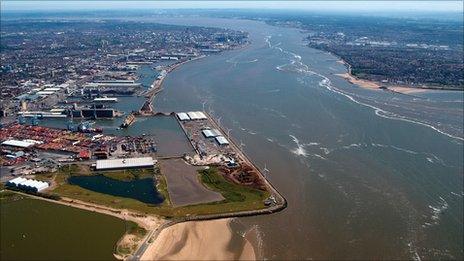Authority to vote on River Mersey tidal barrage study plan
- Published
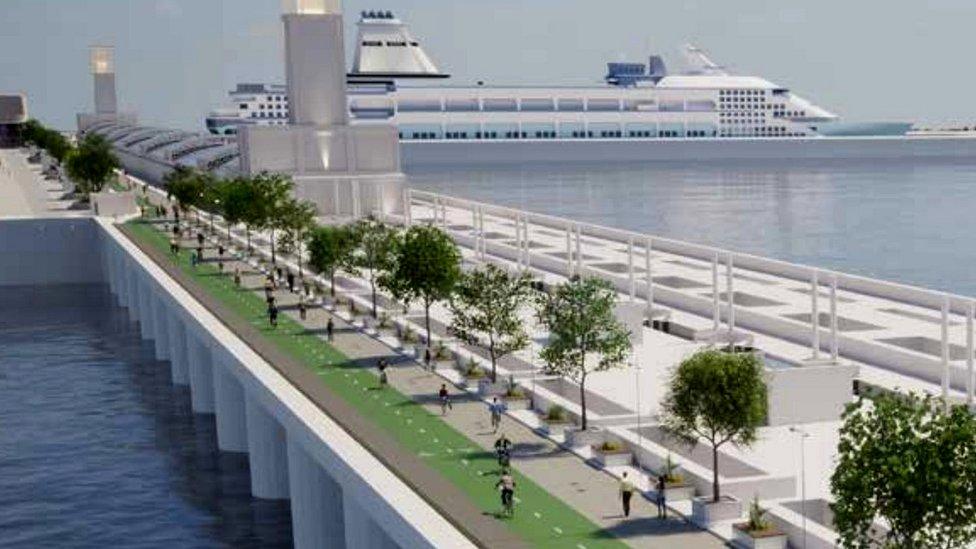
An artist's impression of how the barrage could look
More discussions will be held later about a proposed multibillion-pound tidal scheme across the River Mersey which would generate renewable energy.
Members of the Liverpool City Region Combined Authority will decide whether to commission a study of the scheme's technicalities.
The barrage, which was confirmed as the preferred project in October, would link Liverpool and Wirral.
It would also allow people to cross on foot or cycle.
Authority members will vote to approve the submission of a scoping request - setting out the technical proposals for what would be the world's largest tidal scheme - to the planning inspectorate.
Liverpool City Region Mayor Steve Rotheram said: "Mersey Tidal Power has the potential to generate clean, predictable energy for 120 years, create thousands of green jobs and apprenticeships - and all but seal our area's status as Britain's renewable energy coast."Beyond the banks of the River Mersey, this is a national infrastructure asset that could position the UK as a global leader in the renewables race and help to turbocharge our net zero ambitions."
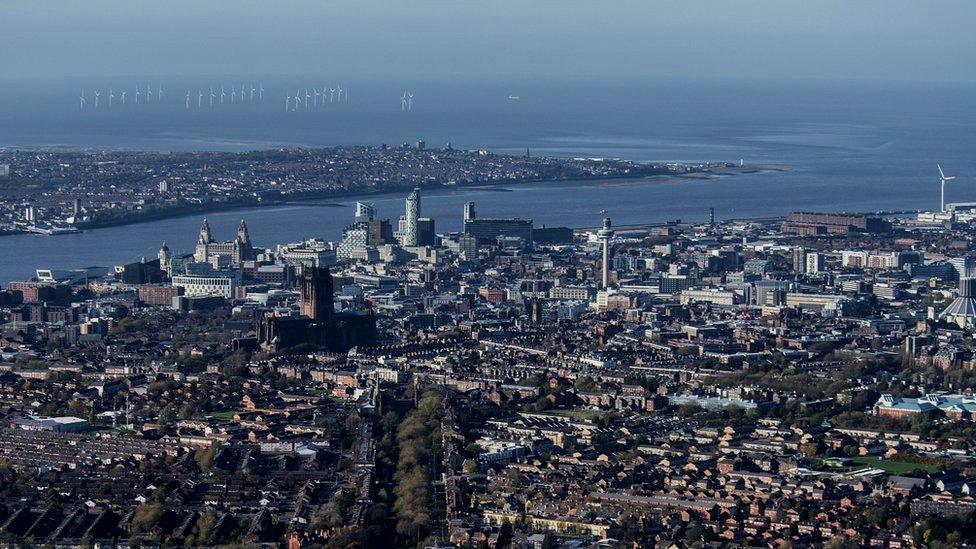
The barrage would play a huge role in the region's push to net zero carbon by 2040
However, he said he was "under no illusions" and realised there was "still significant technical and financial challenges to overcome" but added: "Quite simply, the case for tidal has never been clearer."
Authority officials said the scheme could be running within a decade but would need government cash.If authority members agree to submit a scoping request a consultation period would then take placeA report to the authority said the barrage would be less expensive than a lagoon and would offer other advantages, including the potential to help manage issues related to climate change.The scoping opinion would be the first step to preparing a Development Control Order (DCO) submission - a two to three-year process needed for national infrastructure developments.

Why not follow BBC North West on Facebook, external, Twitter, external and Instagram, external? You can also send story ideas to northwest.newsonline@bbc.co.uk, external
Related topics
- Published29 November 2023
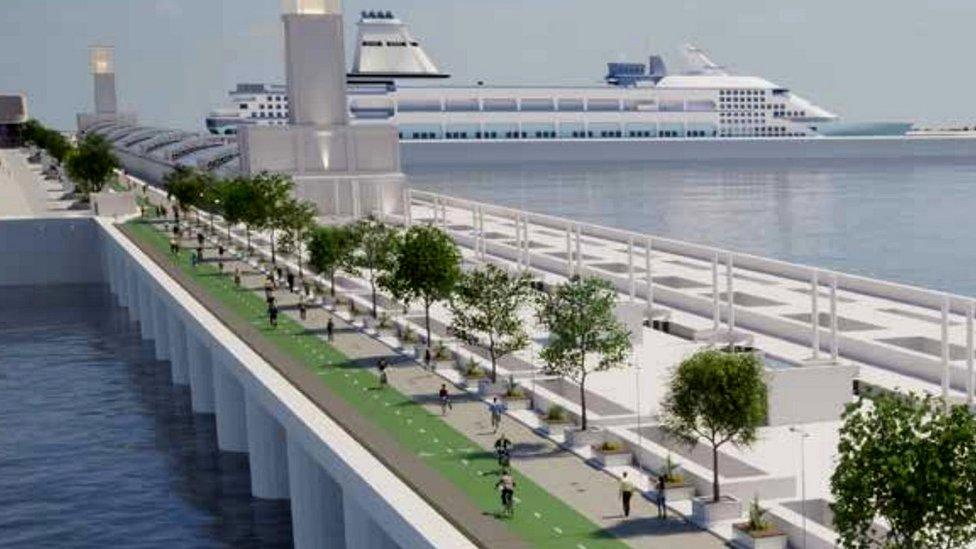
- Published6 December 2022

- Published28 February 2020

- Published14 November 2017
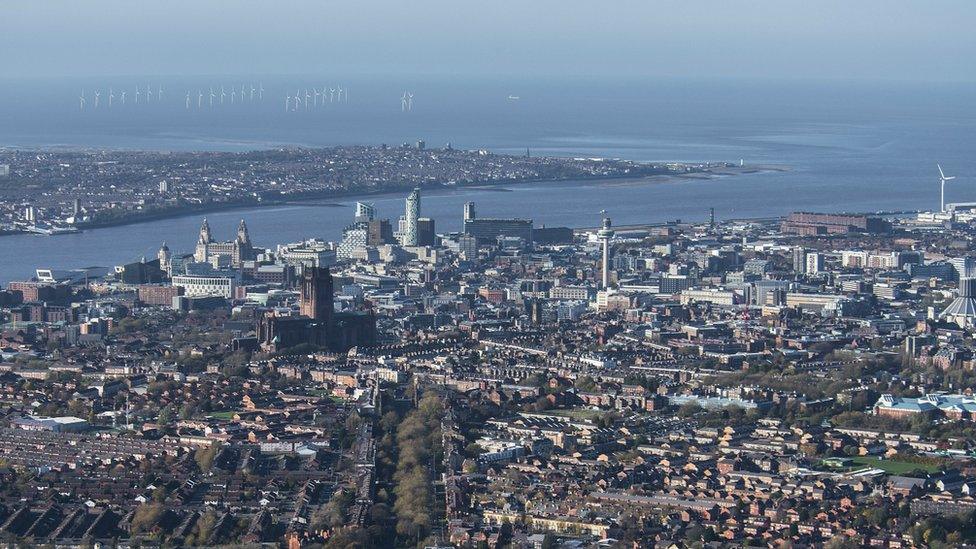
- Published22 June 2011
